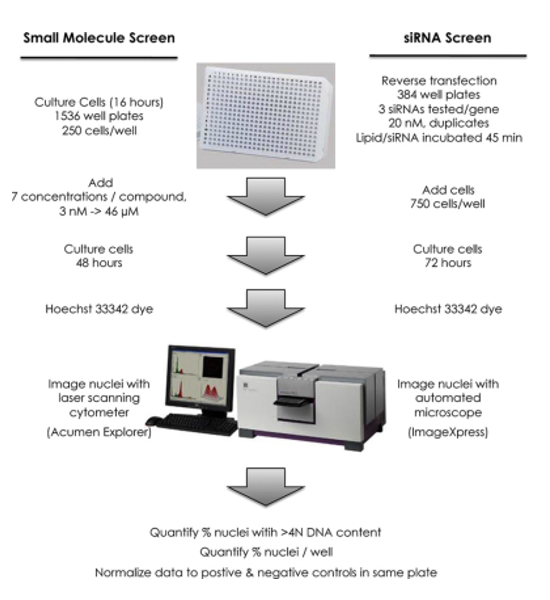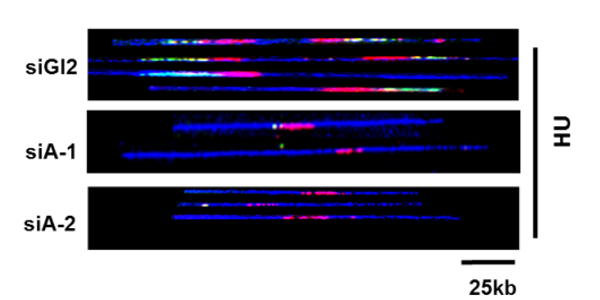
Our lab is interested in following research areas: DNA replication, DNA damage checkpoint and repair, anti-cancer drug resistance, and identification of small molecules for cancer therapy.
Maintenance of genome stability is extremely important in the cell cycle because instable genome is the primary contribution to cancer formation. Cells have evolved multiple mechanisms to prevent genomic instability during genome duplication, including DNA damage checkpoint, DNA damage repair, regulation of DNA replication, etc. The objective of our research is to investigate the mechanisms of how cells maintain the stability of their genome and to utilize this information to identify new target genes and drugs for cancer treatment.
To accomplish this goal, we are conducting following research projects.

(1) Investigate the mechanisms of how cancer cells reply to DNA damage and repair damaged DNA. Specifically we are studying the mechanism regulating DNA damage checkpoint, double-strand break (DSB) repair, nucleotide excision repair (NER), etc. (2) Investigate the mechanisms of anti-cancer drug resistance to improve cancer treatment using high throughput screen (HTS) and genomic approaches.
Currently we are studying platinum drug resistance in ovarian cancer, CDK4/6 inhibitor resistance in breast cancer, and gemcitabine resistance in pancreatic cancer. (3) Investigate how cells prevent DNA re-replication (one type of genomic stability) in both normal and cancer cells. (4) Identify small molecules using HTS assay or structure-based drug design for cancer therapy. Using these assays, we have identified multiple small molecules that prevent tumor growth by targeting DNA replication, protein modification, transcription, etc.